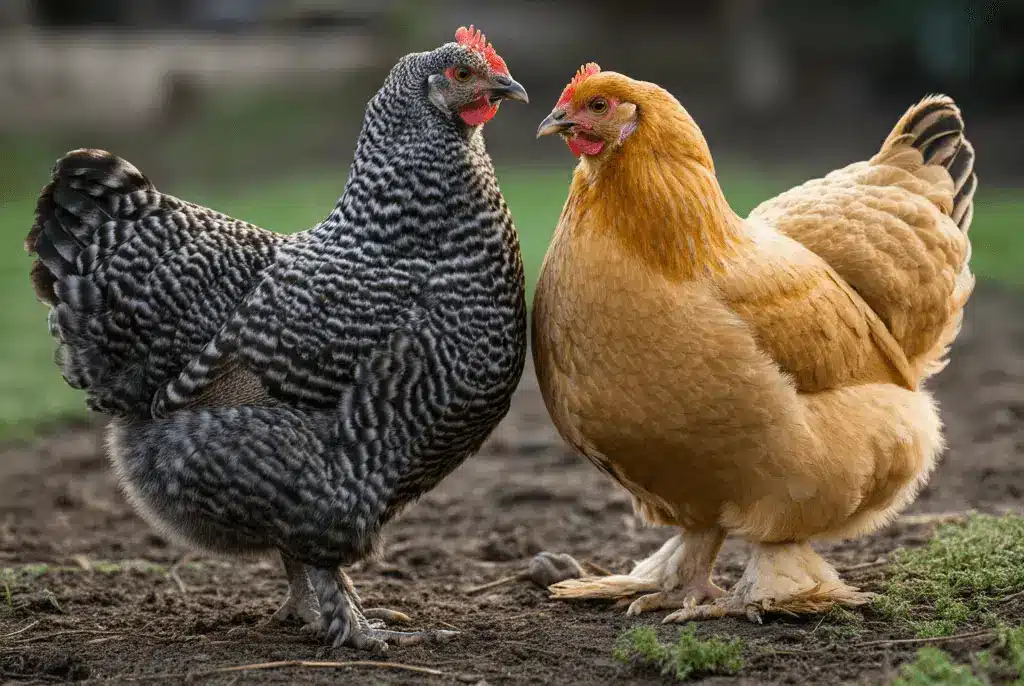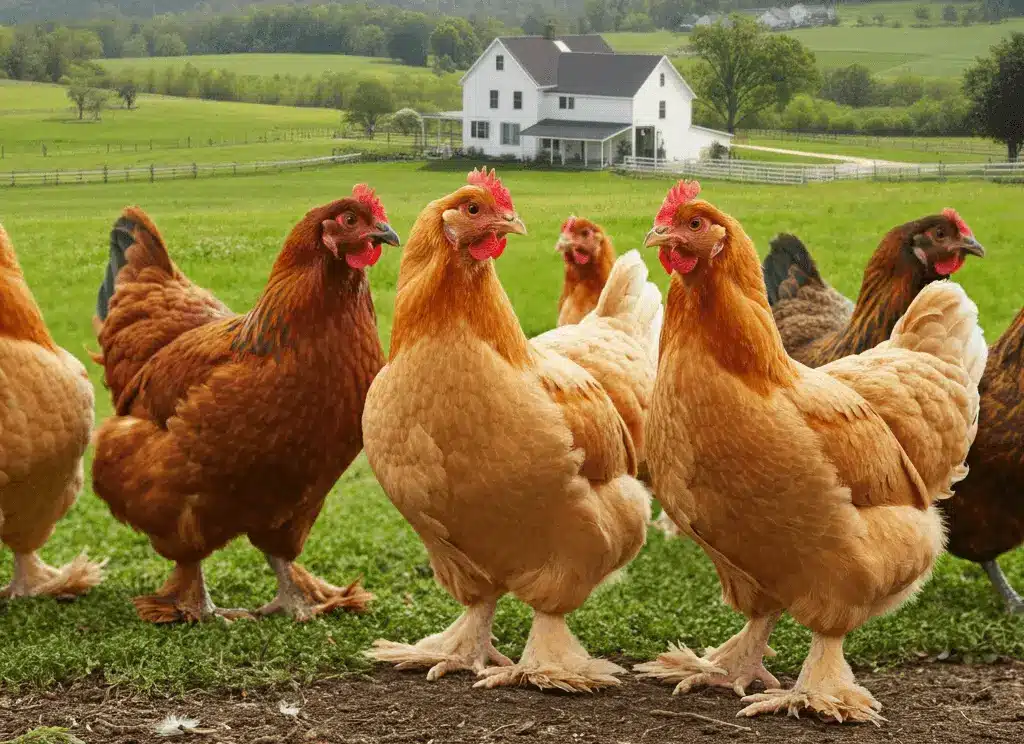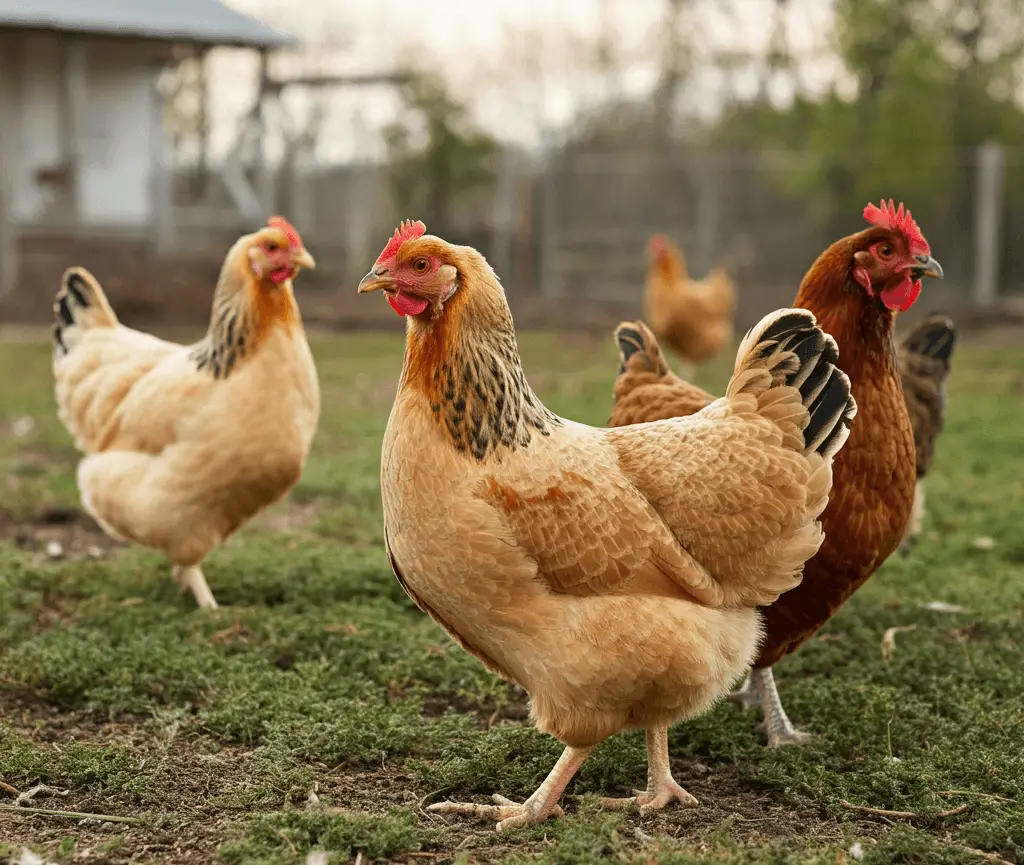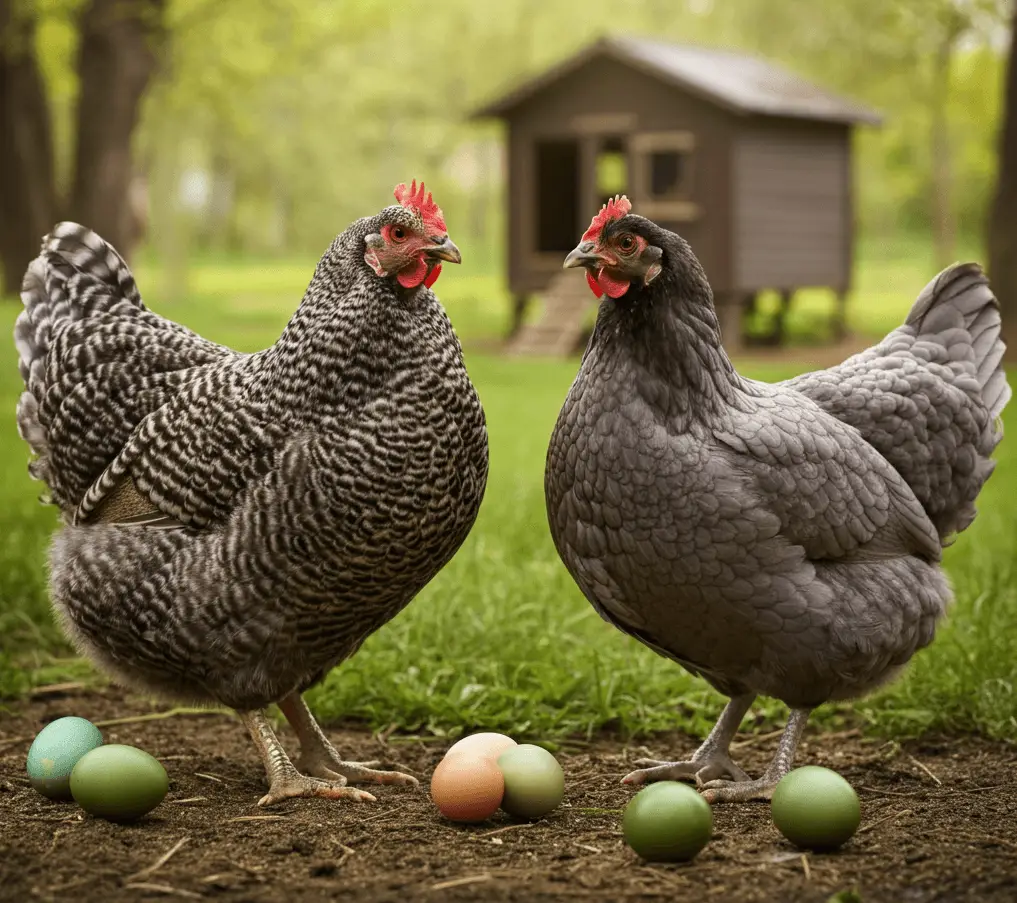Raising chickens in your backyard or on your homestead is a rewarding experience, but choosing the right breed for your flock can be overwhelming. If you’ve narrowed it down to Orpington and Sussex chickens, you’re off to a great start. Both breeds are beloved by poultry enthusiasts for their friendly personalities and dependable egg production.
But how do Orpingtons and Sussex chickens compare in size, temperament, and egg-laying ability? Let’s dig into the details so you can decide which feathered friend is the best fit for your backyard.
Why Compare Orpington and Sussex Chickens?
Orpington and Sussex chickens are two of the most popular heritage breeds for backyard chicken care. They share similarities—both are cold-hardy, dual-purpose birds that thrive in small flocks—but they also have distinct traits that might make one better suited to your farm’s needs.
When you’re deciding which to raise, understanding their size, personality, and productivity is key. After all, chickens aren’t just livestock; they become part of your family.
Size: Big and Beautiful Birds
Orpington Chickens
Orpingtons are often described as “big and fluffy.” Their soft, dense feathers give them a rounded appearance. Hens typically weigh between 7 to 8 pounds, while roosters can tip the scales at 10 pounds or more. Their larger size makes them slower-moving and easy to handle—perfect for beginners or families with children.
This bulk also makes Orpingtons excellent at tolerating cold winters. Their thick plumage acts as insulation, making them a favorite in regions that experience chilly weather.
Sussex Chickens
Sussex chickens, while not quite as heavy as Orpingtons, are still considered a decently sized breed. Hens weigh around 6 to 7 pounds, with roosters reaching about 9 pounds. Their sleek yet robust build makes them agile foragers, and they hold their own in diverse flock settings, where pecking order matters.
Winner: If you’re looking for the bigger bird, Orpingtons take the prize. However, Sussex chickens are by no means small and offer a slightly lighter, more active option.
Temperament: Friendly or Feisty?
Orpington Chickens
If you’re searching for a calm, family-friendly chicken, Orpingtons are hard to beat. These gentle giants are often described as docile, even affectionate. They’re known for being lap chickens, happily sitting with their owners for a cuddle.
Their calm nature makes them ideal for backyard setups where children may be interacting with the flock. Orpingtons also get along well with other breeds, making mixed flocks stress-free.
Sussex Chickens
Sussex chickens are equally beloved for their friendly and curious personalities. They’re a bit more energetic than Orpingtons and enjoy free-ranging and exploring their surroundings. This curious streak doesn’t translate into aggression—they’re gentle and sociable with humans and other animals.
One unique trait of the Sussex breed is their chatty nature. They’re known to “talk” to their owners, clucking softly as they forage.
Winner: Temperament is a tie! Both Orpingtons and Sussex chickens are charming, sweet-natured birds suited to backyard or homestead life. Choose Orpingtons for a calmer presence or Sussex chickens if you enjoy a slightly more active, conversational flock.
Egg Production: The Ultimate Test
Orpington Chickens
When it comes to egg production, Orpingtons are steady layers. A healthy Orpington hen can produce around 175 to 200 light-brown eggs annually. While they’re not the most prolific egg layers, they make up for it with their reliability and hardiness.
Favorite Orpington varieties like Buff Orpingtons are particularly known for their consistent production, even during colder months when other breeds might slow down.
Sussex Chickens
Sussex chickens bring their A-game to the egg-laying department. They can lay up to 250 eggs per year, often outperforming Orpingtons in sheer productivity. Their eggs are large, rich, and often slightly lighter in color than those of Orpingtons.
They’re also known for their consistency. Whether it’s summer or winter, Sussex hens tend to maintain their laying habits with minimal disruption.
Winner: Sussex chickens take the lead in egg production, making them an excellent choice if high yield is your priority. Orpingtons, however, remain dependable layers with the added bonus of being stellar pets.
Which Breed is Right for You?
Ultimately, the decision between Orpington and Sussex chickens depends on your priorities:
- Choose Orpingtons if you value size, calm demeanor, and cold-hardiness. They’re fantastic for first-time chicken owners or families with children who want an affectionate feathered friend.
- Choose Sussex chickens if you prioritize egg production, active foraging, and a lively presence in your flock. Their energy and curiosity bring character to any backyard.
Of course, you can always opt for both breeds. Orpingtons and Sussex chickens complement each other well in mixed flocks and can thrive together in harmony.
How to Care for Both Breeds
Both Orpington and Sussex chickens are low-maintenance and beginner-friendly. Here are a few tips for excellent backyard chicken care:
- Housing: Provide a clean, secure coop with enough space—aim for 4 square feet per bird inside the coop and at least 10 square feet in the run.
- Feeding: A quality layer feed, along with occasional kitchen scraps and access to forage, will keep their diets balanced.
- Health: Regularly check for signs of parasites, such as mites or lice, and ensure their vaccinations are up to date.
- Enrichment: Both breeds enjoy room to roam, so free-range them when possible or add some enrichment, like hanging treats or dust baths, to their run.
Finding Your Feathered Friends
If you’re ready to add Orpingtons or Sussex chickens to your flock, local breeders, hatcheries, or farm supply stores are a great place to start. You might also find these breeds available for adoption through poultry rescue organizations.
When sourcing your chickens, ask questions about the birds’ health, vaccinations, and age to ensure you’re getting happy, healthy additions to your family.
Start Building Your Dream Flock
Whether you choose the fluffy, relaxed Orpington or the lively, productive Sussex, both breeds are wonderful for homesteaders, hobby farmers, and backyard chicken enthusiasts. They each bring unique personalities and benefits, making either an excellent choice.
Take your time to assess your needs—size, temperament, or egg production—and start building the backyard flock of your dreams.
Happy chicken keeping!





[…] chickens are versatile and can serve multiple purposes, whether for egg production or meat. Their egg-laying capabilities are impressive, with many breeds capable of producing large, […]